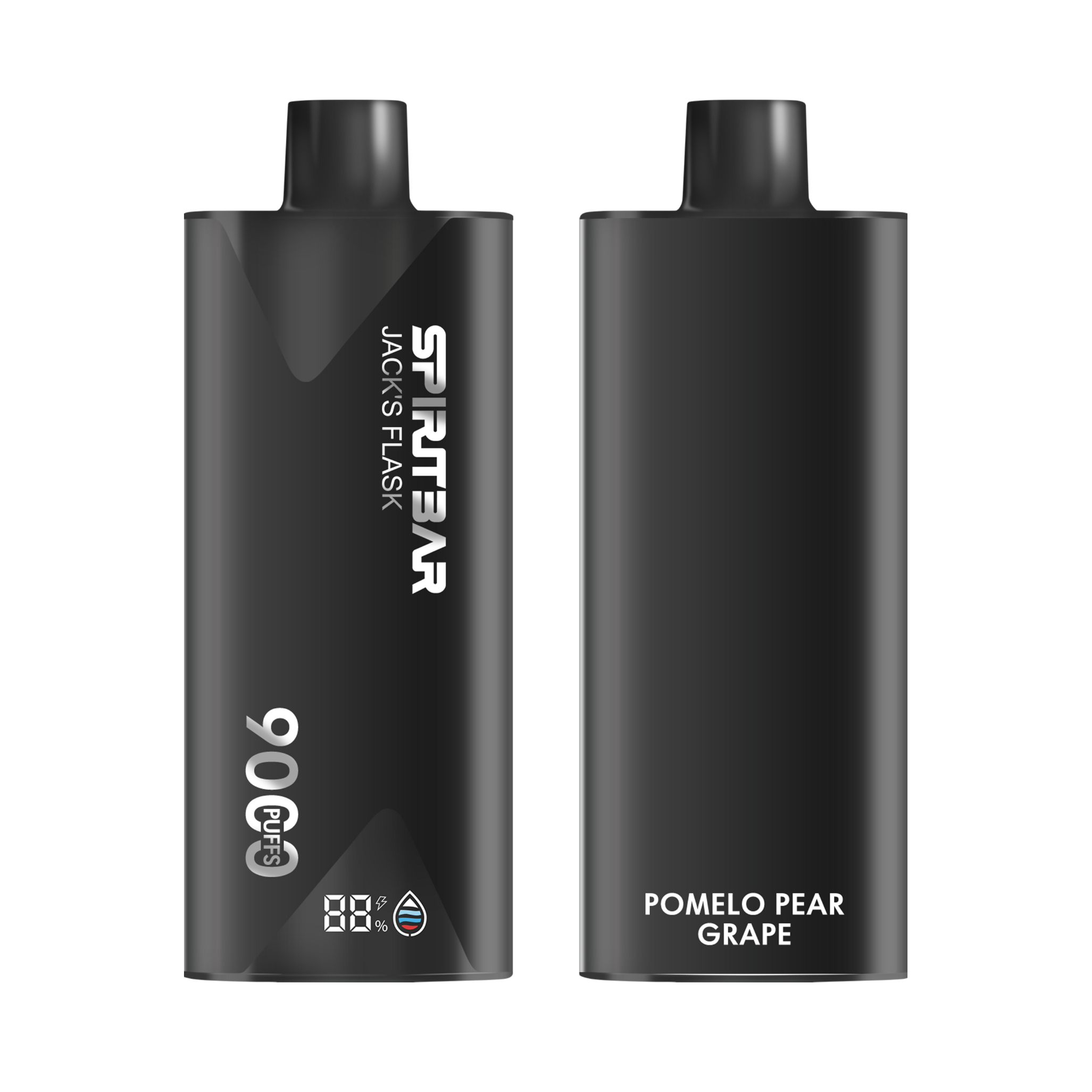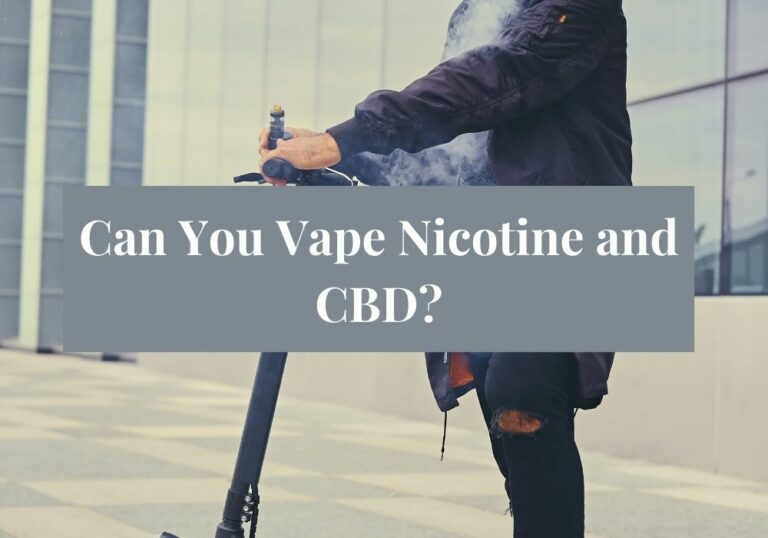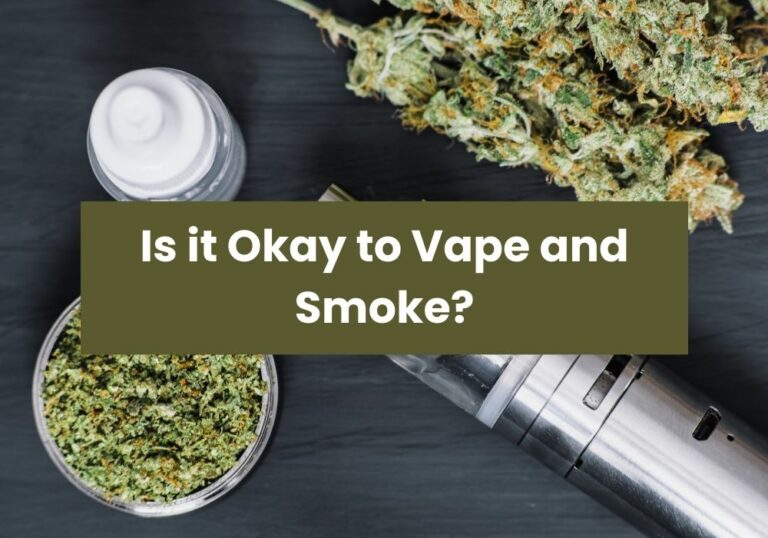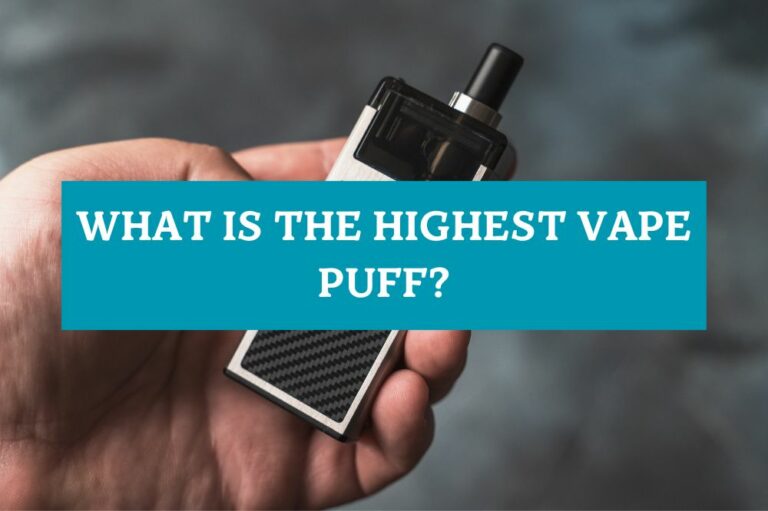Is Vaping Bad for Mouth Sores?
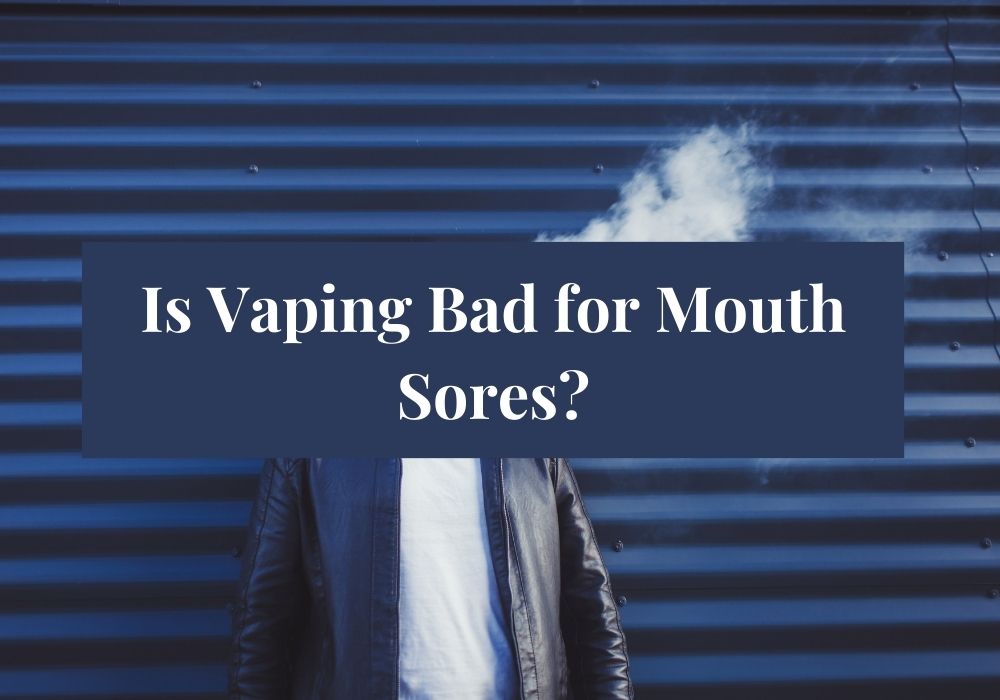
If you’re a vaper, you may have experienced mouth sores or canker sores at some point. These painful ulcers can make it difficult to eat, drink, and even talk. But is vaping the culprit behind these mouth sores? In this article, we’ll explore the link between vaping and mouth sores and what you can do to prevent them.
Studies have shown that vaping can increase the risk of developing mouth sores. The high temperature produced by vapes can cause irritation and damage to the delicate tissues in your mouth, leading to the formation of canker sores. Additionally, the chemicals in e-cigarettes can also contribute to the development of these painful ulcers.
If you’re a regular vaper and have been experiencing mouth sores, it’s important to take steps to prevent them from occurring. By following good oral hygiene practices, staying hydrated, and avoiding certain foods and drinks, you can reduce your risk of developing canker sores and keep your mouth healthy. In the next section, we’ll discuss some effective methods for treating and preventing mouth sores caused by vaping.
Understanding Mouth Sores
If you’ve ever experienced a mouth sore, you know how uncomfortable and painful they can be. Mouth sores, also known as canker sores or mouth ulcers, are small, shallow lesions that form on the soft tissues inside your mouth.
SPIRITBAR Katana BP10000
- Slender, leather-textured body reminiscent of a katana handle for an authentic samurai feel
- Unique samurai-inspired e-liquid flavor - fruity yet not too sweet, with a luxurious, elegant aroma
- Powerful 650mAh rechargeable battery for extended vaping time
- Large 18ml e-liquid capacity and 10,000 puff capacity
- Advanced mesh coil and e-liquid & power display screens for optimal vaping experience
The special juice captures the essence of the samurai spirit with its rich, smoothly pulsating flavor that brings new satisfaction with every puff. The device's slender, leather-textured design evokes the grip of a samurai's katana, making this product a perfect choice for beginner vapors.
Causes of Mouth Sores
There are several factors that can cause mouth sores, including stress, injury, and certain medical conditions. However, recent studies have suggested a potential link between vaping and the occurrence of mouth sores. The chemicals present in e-cigarette liquids, such as nicotine and propylene glycol, can irritate the delicate tissues inside your mouth, triggering the formation of canker sores.
Symptoms of Mouth Sores
Mouth sores typically appear as small, round, or oval-shaped lesions with a white or yellow center and a red border. They can be painful and may make it difficult to eat or speak. In severe cases, mouth sores can cause fever, swollen lymph nodes, and fatigue.
If you are experiencing mouth sores, it is important to maintain proper oral hygiene to prevent further irritation. This includes regular brushing and flossing, along with using an alcohol-free mouthwash to keep your mouth clean and moist. Additionally, if you suspect that vaping may be causing your mouth sores, consider reducing or eliminating your use of e-cigarettes and consult with a healthcare professional for further guidance.
SPIRITBAR Jack’s Flask 9000 Puffs
- Stylish pirate flask-shaped body providing an exciting vaping experience
- Delivering up to 9000 puffs per device
- 20ml e-liquid capacity with 50mg nicotine strength for satisfying throat hit
- Specialized pirate-themed e-juice flavors for rich, swirling taste
- Premium mesh coil optimizes flavor profile for maximum vaping enjoyment
This disposable vape captures the daring spirit of the high seas with its flask styling and signature pirate e-juice flavors. The extraordinary battery life provides 9000 indulgent puffs for extended vaping pleasure. Live boldly and freely with the Jack's Flask - a legendary vaping experience fit for a pirate's adventures.
What is Vaping
If you’re not familiar with vaping, it’s the act of inhaling and exhaling vapor produced by an electronic cigarette or similar device. Vaping is often used as an alternative to smoking traditional cigarettes. The vapor is produced by heating a liquid, known as e-liquid or vape juice, which typically contains nicotine, flavorings, and other chemicals.
Vaping has become increasingly popular in recent years, particularly among young people. According to a 2018 survey by the National Institute on Drug Abuse, more than 20% of high school seniors reported using an e-cigarette in the past month.
While vaping is often marketed as a safer alternative to smoking, it’s important to note that e-cigarettes and other vaping devices are not without risks. In addition to nicotine, e-liquids can contain other potentially harmful chemicals, including heavy metals and volatile organic compounds. These chemicals can cause a range of health problems, including lung damage and respiratory issues.
In addition to the potential health risks, vaping can also cause mouth sores. Dry mouth is a common side effect of vaping, which can make your gums and tongue more susceptible to irritation and infection. This can lead to the development of canker sores and other mouth ulcers.
Overall, while vaping may be less harmful than smoking traditional cigarettes, it’s important to be aware of the potential health risks and to take steps to protect your oral and overall health if you choose to vape.
The Connection Between Vaping and Mouth Sores
If you’re a vaper, you may have experienced painful mouth sores, also known as canker sores or mouth ulcers. While there are several potential causes of these sores, recent research has suggested that vaping may be one of them.
SPIRITBAR Katana BP10000
- Slender, leather-textured body reminiscent of a katana handle for an authentic samurai feel
- Unique samurai-inspired e-liquid flavor - fruity yet not too sweet, with a luxurious, elegant aroma
- Powerful 650mAh rechargeable battery for extended vaping time
- Large 18ml e-liquid capacity and 10,000 puff capacity
- Advanced mesh coil and e-liquid & power display screens for optimal vaping experience
The special juice captures the essence of the samurai spirit with its rich, smoothly pulsating flavor that brings new satisfaction with every puff. The device's slender, leather-textured design evokes the grip of a samurai's katana, making this product a perfect choice for beginner vapors.
Chemicals in Vape Juice
One of the main reasons why vaping may lead to mouth sores is the presence of chemicals in e-cigarette liquids. These chemicals, such as nicotine and propylene glycol, can irritate the delicate tissues inside the mouth, triggering the formation of canker sores. In fact, a study published in the Journal of Oral Pathology and Medicine found that individuals who vaped were more likely to develop mouth sores than those who did not.
Vaping and Oral Health
Additionally, the act of inhaling vapor may cause dryness in the mouth, reducing saliva production, which plays a vital role in preventing the occurrence of oral sores. Furthermore, the high temperature of the vapor could potentially damage the delicate lining of the mouth, making it more susceptible to canker sores.
To avoid developing mouth sores from vaping, it’s important to practice good oral hygiene, such as brushing and flossing regularly, and to stay hydrated by drinking plenty of water. You may also want to consider switching to a lower nicotine strength or a different type of e-liquid that is less irritating to the mouth. If you do develop mouth sores, there are several over-the-counter treatments available, such as Canker Shield, that can help alleviate the pain and promote healing.
Overall, while vaping may offer a less harmful alternative to traditional tobacco products, it’s important to be aware of the potential risks to your oral health. By taking steps to prevent and treat mouth sores, you can continue to enjoy the benefits of vaping while minimizing any negative side effects.
Scientific Studies on Vaping and Mouth Sores
If you are experiencing mouth sores and you are a vaper, it is important to understand the connection between the two. Several scientific studies have explored the relationship between vaping and mouth sores, and the findings are concerning.
One study published in the Journal of Oral Pathology and Medicine found that e-cigarette vapor can cause damage to oral tissues, which can lead to the development of mouth sores. The study also found that the severity of the damage increased with the frequency and duration of e-cigarette use.
Another study published in the Journal of Clinical Periodontology found that e-cigarette use is associated with an increased risk of developing gum disease, which can also lead to the development of mouth sores.
It is important to note that the exact cause of mouth sores is not fully understood, and there may be other factors at play. However, these studies suggest that vaping may contribute to the development of mouth sores and other oral health issues.
If you are experiencing mouth sores, it is important to speak with your healthcare provider. They can help you determine the underlying cause and provide appropriate treatment. Additionally, if you are a vaper, it may be worth considering quitting or reducing your e-cigarette use to protect your oral health.
Preventing Mouth Sores While Vaping
If you are a vaper and have experienced mouth sores, also known as canker sores or mouth ulcers, you may be wondering what you can do to prevent them. Here are some tips to help you keep your mouth healthy while still enjoying your vaping experience:
- Practice good oral hygiene: Brush your teeth twice a day, floss regularly, and use an antibacterial mouthwash to keep your mouth clean and free from bacteria that can contribute to the formation of canker sores.
- Stay hydrated: Vaping can cause dry mouth, which can increase the risk of developing mouth sores. Be sure to drink plenty of water throughout the day to keep your mouth moist.
- Choose the right e-liquid: Some e-liquids contain high levels of acidic ingredients, such as citric acid, which can irritate the mouth and lead to the formation of canker sores. Look for e-liquids that are pH balanced and contain lower levels of acidic ingredients.
- Take breaks: If you find that you are experiencing mouth sores frequently while vaping, try taking breaks between vaping sessions. This can help give your mouth time to recover and reduce the risk of developing new sores.
- Use protective products: There are a variety of products available that can help protect your mouth while vaping. For example, using a lip balm or moisturizer can help prevent dry, cracked lips, while using a mouth guard can help protect your teeth and gums from the heat and vapor produced by your device.
By following these tips, you can help prevent mouth sores while still enjoying the benefits of vaping. Remember to always prioritize your oral health and seek professional advice if you experience persistent or severe mouth sores.
Alternatives to Vaping
If you’re looking for alternatives to vaping, there are several options available. Here are a few to consider:
- Nicotine Replacement Therapy (NRT): NRT products deliver nicotine to the body in a controlled way. This consistent dose can help ease nicotine withdrawal symptoms associated with quitting smoking or vaping. NRT products include nicotine patches, gum, lozenges, inhalers, and nasal sprays. Speak to your doctor or pharmacist to find out which NRT product is right for you.
- Chewing Gum: Chewing gum can help curb nicotine cravings and keep your mouth busy. It can also help stimulate saliva production, which can help relieve dry mouth. Choose sugar-free gum to avoid tooth decay.
- Exercise: Exercise can help reduce stress and improve your mood, which can help reduce nicotine cravings. It can also help improve your overall health.
- Meditation: Meditation can help reduce stress and improve your focus. It can also help you become more aware of your thoughts and feelings, which can help you better manage nicotine cravings.
- Support Groups: Joining a support group can help you connect with others who are going through the same thing. It can also provide you with a safe space to discuss your thoughts and feelings.
Remember, quitting vaping or smoking is a journey, and it’s important to find the right method that works for you. Speak to your doctor or pharmacist to find out which method is right for you.


